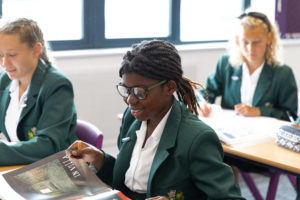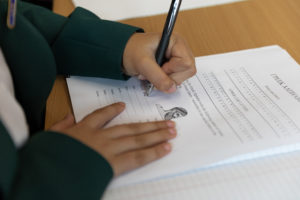Curriculum Intent

History at Southend High School for Girls gives students a sense of chronology that enables them to understand the process of change, including causation, consequence, turning points and significance, in order that they can make sense of the present. Our students will understand the story of Britain, the people who make up modern Britain, and the wider world, and to have an appreciation of the past in all its diversity, including women, people of colour, and those not in positions of power. They will know how Britain has influenced and been influenced by the wider world. They will develop a wide chronological vision, studying the world from ancient civilisations through to the closing decades of the 20th century. This will encompass periods as broad as the Saxons, Medieval monarchy, Early Modern Britain, the making of modern Ghana, WW1, the Cold War and the fight for Civil Rights, and Empires as diverse as the Roman Empire, the British Empire, the Soviet Empire and Third Reich. Students will have a mastery of the facts in order to independently formulate arguments that are clearly expressed, coherently organised and effectively supported. They will have the skills and confidence to analyse and evaluate the evidence from contemporary sources and the interpretations of historians by applying their own detailed knowledge and understanding. They will understand that the past is constructed and contested through research, analysis of evidence, and the formulation of new questions.
What does it feel like to be a student in the History Department?

Studying History at SHSG is an experience that is challenging and intellectually stimulating, and expectations of you will be high. You will be expected to be intellectually curious and self motivated. You will be taught to express your ideas articulately using appropriate vocabulary, whilst supporting your points with detailed and precise knowledge. You will be asked to analyse and evaluate primary sources and historians’ interpretations in light of your own contextual knowledge. You will be expected to come to your lessons having prepared for them in advance by reading or consolidating your prior knowledge. You will be taught to write coherent paragraphs and then to develop this into extended and sophisticated formal writing. You will be given opportunities to extend your learning by visiting sites of historical significance, such as Mountfitchet Castle, first world war trenches, Berlin and Paris. By the end of your History studies you will have acquired the ability to balance an argument, to support your point of view with accurate evidence, and a wide knowledge of the past in all its diversity of sex, class and colour.
Please click on the button below to download the assessment policy for History.
